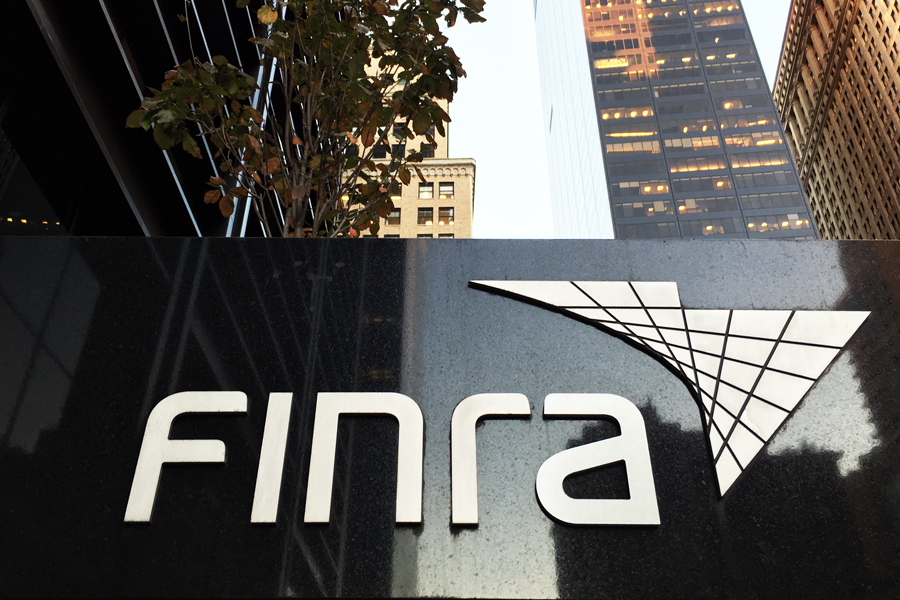

New Finra rules would tighten the organization’s membership application process to curb the ability of individual brokers and firms to sidestep paying arbitration awards.
Under rules that have been approved by the Securities and Exchange Commission and will take effect on Sept. 14, the Financial Industry Regulatory Authority Inc. will be able to deny a new membership to a registered representative or a firm if the applicant has pending arbitration claims where there is a concern about payment of potential awards or settlements.
The rules also would force firms with substantial unpaid arbitration awards to submit an application for continuing membership and undergo heightened Finra scrutiny if they attempt to shift assets, management or owners to another firm and close down.
“Finra is concerned about prospective applicants for new membership hiring principals and registered persons with pending arbitration claims without having to demonstrate how those claims will be paid if they go to award or result in a settlement,” Finra states in a regulatory notice. “In addition, FINRA is concerned about a new member’s supervision of such individuals who may have a history of noncompliance.”
Unpaid arbitration awards have been an ongoing problem for Finra. In a 2018 study, Finra said more than a quarter of arbitration awards went unpaid between 2012 and 2016.
The brokerage industry self-regulator has come under pressure from Congress and the Public Investors Arbitration Bar Association to help harmed investors collect after winning arbitration cases.
PIABA president Sam Edwards said Finra’s effort to tighten the membership process doesn’t go far enough.
“It’s a step in the right direction, but it’s still fundamentally a very small Band-Aid trying to cover a gaping wound,” Edwards said. “It’s what Finra has been doing lately. They’ve been nibbling around the edges of problems rather than hitting them head on.”
Edwards supports establishing a pool of money drawn from firms to fund unpaid arbitration awards.
Another lawyer who frequently deals with Finra also criticizes it for missing the mark with membership application change but for a different reason. He says the regulator is giving too much credence to each arbitration claim.
“Finra is yet again focusing on the symptom, not the problem,” said Tosh Grebenik, chief in-house counsel at FA Expungement, a firm that helps advisers with their disclosures. “Finra is focusing on trying to get settlements paid instead of vetting the claims and refining the claims process.”
A Finra spokeswoman said the regulator is targeting unpaid arbitration awards in a number of ways.
“This is one of several steps Finra is taking as part of a broader effort to help address the issue of unpaid arbitration awards,” said Finra spokesperson Michelle Ong.
Finra has filed for SEC approval for a rule change that would give harmed investors more latitude in pursuing brokers and firms that become inactive during the arbitration process. It also is proposing to increase capital requirements on brokerages that hire a high number of brokers with long disciplinary histories.
But Finra’s efforts fall short of eradicating problem firms, Edwards said.
“Finra needs to start throwing out these bad brokers and bad firms that are hurting investors,” Edwards said.
But an arbitration action does not indicate a firm or broker has gone rogue, said Grebenik.
‘The fact that there’s a pending arbitration claim doesn’t mean they’re a bad person or that they’ve done anything wrong,” Grebenik said. “It solely means they have a pending arbitration.”

Most firms place a limit on advisors’ sales of alternative investments to clients in the neighborhood of 10% a customer’s net worth.

Those jumping ship include women advisors and breakaways.

Firms in New York and Arizona are the latest additions to the mega-RIA.

The agent, Todd Bernstein, 67, has been charged with four counts of insurance fraud linked to allegedly switching clients from one set of annuities to another.

“While harm certainly occurred, it was not the cataclysmic harm that can justify a nearly half billion-dollar award to the State,” Justice Peter Moulton wrote, while Trump will face limits in his ability to do business in New York.
Orion's Tom Wilson on delivering coordinated, high-touch service in a world where returns alone no longer set you apart.
Barely a decade old, registered index-linked annuities have quickly surged in popularity, thanks to their unique blend of protection and growth potential—an appealing option for investors looking to chart a steadier course through today's choppy market waters, says Myles Lambert, Brighthouse Financial.
